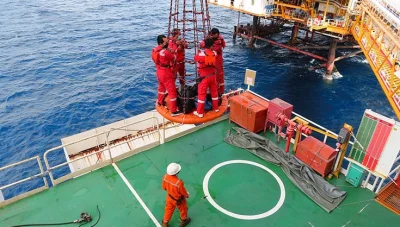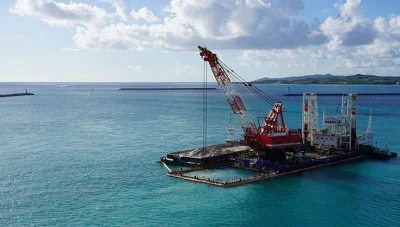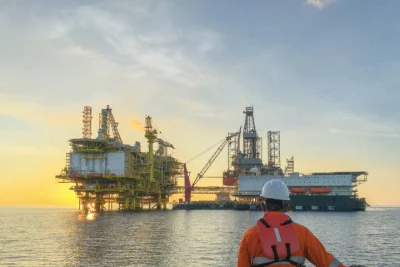IP Code
The IMO’s Maritime Safety Committee has adopted a mandatory Code of Safety for Ships Carrying Industrial Personnel, or more simply, the IP Code. It is the first regulation relating to cargo vessels carrying people other than those working onboard. It is sure to add a new layer of preparation and administrative requirements for crews and teams ashore.
The IP Code, which will be in the new chapter XV of SOLAS, is expected to enter into force in July 2024. It will primarily affect vessels serving offshore windfarms, oil and gas installations, aquaculture, ocean mining and other operations requiring the transport of personnel.
The presumed intention of this new amendment is to fill a gap in the regulations between cargo ships covered by the SOLAS convention and SOLAS-covered passenger ships. As things stand today, ships carrying 12 or more people onboard, other than those employed to work on the ship, are considered passenger vessels. For cargo vessels carrying more than 12 people not engaged onboard, no international regulations relating to the passengers are currently in force.
Instead, many, but not all, flag administrations for such passenger-carrying cargo vessels today typically accept the non-mandatory SPS Code, the code of safety for special purpose ships. The SPS Code is primarily focused on ensuring the safety of onboard personnel, and its application to the transport of non-crew members can be a source of confusion and inconsistency within the shipping industry.

What the new IP Code will require
As part of the new IP Code, all industrial personnel – meaning non-crew members onboard being transported to work on an offshore installation – must receive training and instructions on personal safety and survival. This must be carried out prior to boarding the vessel. It includes, among several other things:
- training for possible emergency situations,
- training on how to use personal life-saving equipment,
- training on abandon ship and survive in the water,
- training on how to board a survival craft.
These personnel should also be familiar with the ship’s layout with regards to the location of life vests and muster points, safety symbols and alarms, what action to take in an emergency, and so on.
There is no shortage of requirements to keep track of. Fortunately, digital technology is here to help. The IP code is available to ship and shoreside personnel in Regs4ships, OneOcean’s intelligent database of maritime regulations.

Clarifying the confusion
The maritime industry is already full of a host of regulatory requirements. Owners and operators are required to ensure that their vessels comply with rules set and overseen by the IMO, the European Maritime Safety Agency (EMSA), the USA’s Federal Maritime Commission (FMC), the Maritime Safety Administration of the People’s Republic of China (CMSA), and various regional and national authorities.
These regulations are aimed at:
- minimising CO2 emissions
- assessing and assuring the safety of the ship, its crew and its cargo
- minimising pollution
- enhancing cyber security
- preventing the transfer of harmful aquatic organisms in water
- and much more. The IP Code now adds one new requirement to this list.
The hot knife that can cut through the butter of this legislation is digital technology. Knowing what the regulations are, and where they are in force, is the first step in ensuring compliance. All information on the IP Code can be found, along with all other maritime regulatory information, in OneOcean’s Regs4ships.
Regs4ships is an industry-leading compliance solution. It contains an intelligent database of maritime regulations from numerous Flag States, international and national sources allowing ship and shoreside teams to stay up-to-date and compliant with even the very latest of requirements in force around the world. It also notifies users of upcoming changes to legislation, so they can plan accordingly, as far in advance as possible.
Flag States have raised a number of questions relating to the proposed IP Code seeking to ensure that it does not contradict other existing codes and looking to clarify the certification requirements. There has also been concern as to whether enough consideration has been given to the actual ships or operations most likely to be addressed by the IP Code. This suggests that before actual implementation, changes and amendments will be introduced.
The best and most effective way of staying current with the latest official developments is by accessing Regs4ships, which will always contain the most up-to-date versions of legislation available, allowing your teams to plan and act with confidence.

